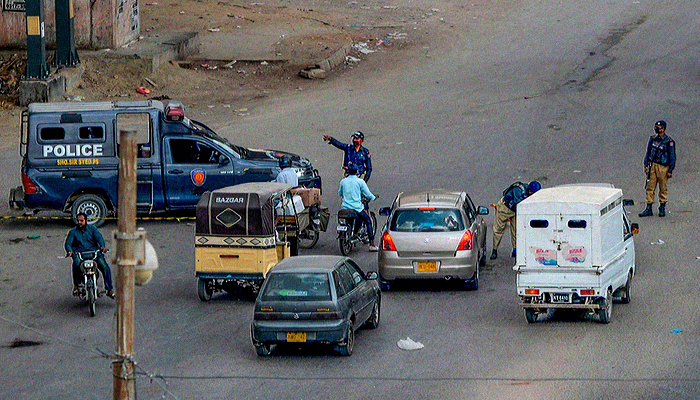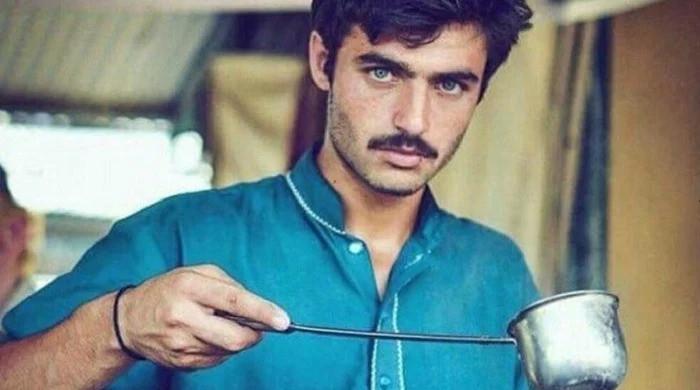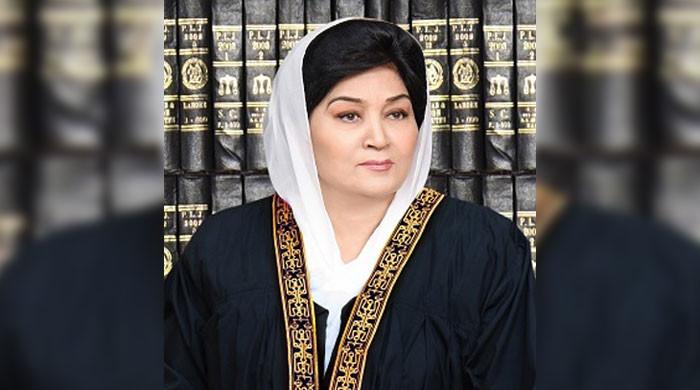Sindh initiates coronavirus-mapping, sends home Sukkur pilgrims who tested negative
Sindh chief minister tells Sukkur commissioner to 'keep inquiring after their health over the next 10 days'
March 24, 2020

KARACHI: The government of Sindh on Tuesday initiated coronavirus-mapping to track patients who are in self-isolation and sent home the pilgrims in Sukkur after they tested negative for the COVID-19.
Authorities were instructed to "keep tracking them (the pilgrims) for the next 10 days".
In a meeting of the provincial task force on coronavirus, Sindh Chief Minister Murad Ali Shah decided to allow the 640 Taftan pilgrims, who were in isolation in Sukkur's Labour Colony, to return to their homes but told them they were obligated to adhere to the standard operating procedures (SOPs) they had been provided.
The development came after Sukkur Commissioner Shafique Ahmed Mahesar apprised Shah of the pilgrims being tested thrice and that their results were negative each time. Subsequently, the Shah directed Mahesar to arrange special buses and send the pilgrims home.
The chief minister added that he would provide the commissioner the SOPs "under which they will have to stay in self-isolation at their respective home for next 10 days” and that Mahesar's team must make sure to obtain "the outgoing pilgrims' mobile numbers and addresses and keep inquiring after their health over the next 10 days".
He also advised the Karachi chief secretary to direct deputy commissioners of the districts — where the 640 pilgrims were headed — to receive them.
The chief minister congratulated the outgoing pilgrims and their families and expressed his hope that they would voluntarily stay home for at least 10 days in the interest of their family members’ health, as well as that of their friends and neighbors.
"I am quite happy that a great burden on the shoulders of the government is dropping,” he said
410 cases in Sindh, 91 local transmissions
Meanwhile, Shah was informed that the number of positive coronavirus cases in Sindh had surged to 410, of which 143 were from Karachi, 265 were pilgrims, and two from other districts.
In addition, the number of local transmissions in the city had risen to 91.
A total of 4,041 samples were tested; of these, 2,443 were from Karachi, 168 from other districts, and 1,430 were pilgrims.
Some 485 results — including 83 from Karachi, 93 from other districts, and 309 of pilgrims — were pending, as of reporting time.
Morover, 796 patients were under treatment at Sukkur-1, another 303 in Sukkur-II, 83 in Larkana, and 98 in Malir, while 104 were in self-isolation at their respective homes.
Coronavirus-mapping, tracking
The process of coronavirus-mapping and tracking the patients was initiated by the Sindh health department on CM Shah's instructions.
According to the map, there are 41 cases in Saddar Town, 15 in Gulshan-e-Iqbal, 10 in Nazimabad, nine each in Gulberg and Jamshed Town, seven in Liaquatabad, four in Malir, three each in Gadap and North Karachi, and one in Orangi. Effectively, 122 of the 143 total cases have been mapped.
The chief minister directed the health department to share the mapping data with deputy commissioners to help them take necessary measures to contain the COVID-19 within their respective areas.
Separately, government hospitals in Sindh have reported a total of 1,874 pneumonia cases, of which 251 were tested, whereas private medical facilities reported 702 cases, of which 21 were tested.
People 'still moving' despite lockdown
The chief minister said the lockdown throughout Sindh needed to be made stricter. "People are still moving here and there without any restrictions,” he lamented.
"This was not the objective when we imposed the lockdown," he added, directing Sindh Inspector-General of Police Mushtaq Mehar to be more vigilant.
Sampling arrangement
Consequent to Shah's directive in the last meeting to health departments to improve the sampling arrangements at home, 18 mobile clinics by The Indus Hospital have been made available for sample collection.
COVID-19 testing machine
During the meeting, the chief minister was also told that the Chinese research facility, the Wuhan Institute of Virology, had prepared a machine to test COVID-19 samples.
While the existing system accepted swabs from the patient's nose, the new one in Wuhan used swabs from the throat.
Shah, in this regard, directed his principle secretary to consult Dr Faisal Mahmood, the head of the Aga Khan University Hospital's (AKUH) Infectious Diseases Department, and Indus Health Network CEO Dr Abdul Bari Khan over whether the machine was fit for Pakistan.
"If the decision is taken in favour of procuring the machine, then place an order for 100 machines,” Shah said, adding that he would request the federal government to fly a special plane to China to transport the machine to Sindh.











